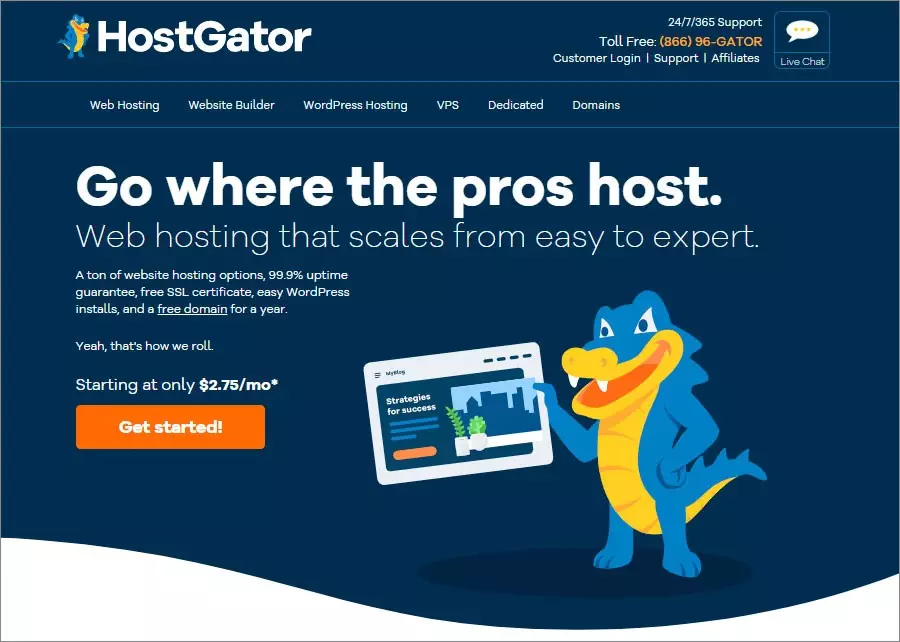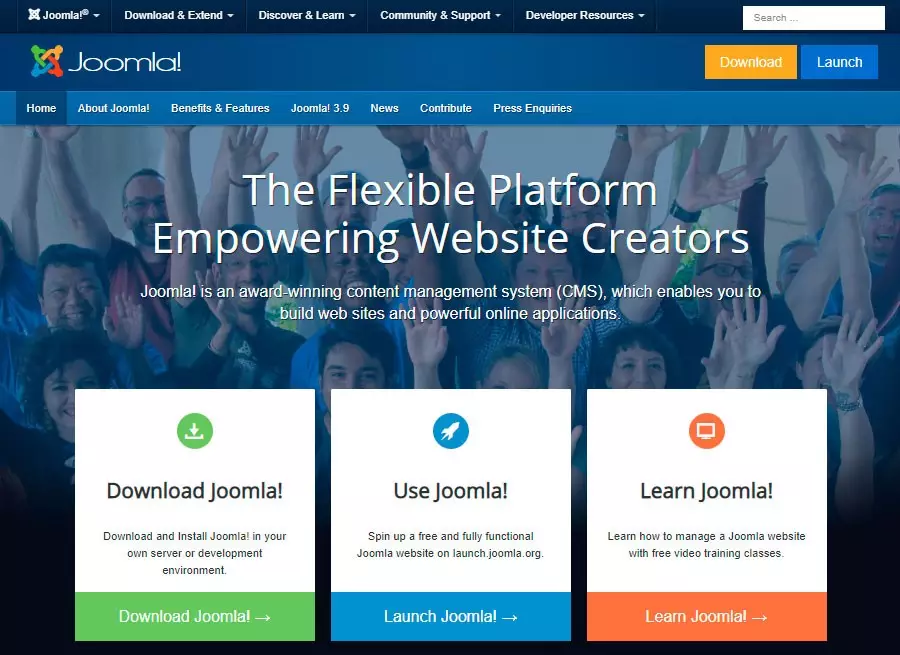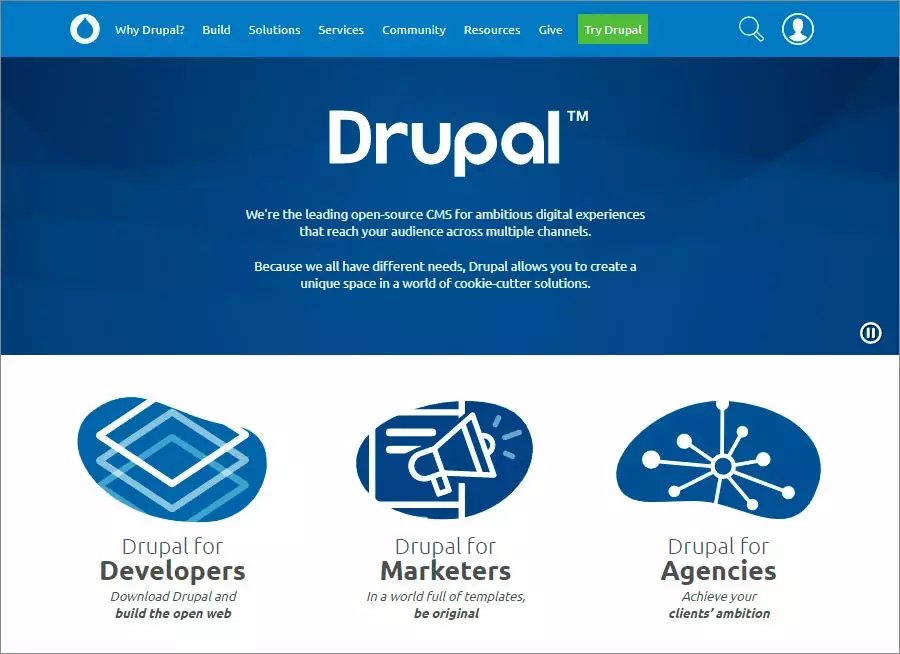WordPress Alternative – Choosing the Best Website Builder (2023)
WordPress might dominate more than 35% of the market, but it is not the only website builder you should check out. There are hundreds of professional, premium, and specialized website builders that are currently giving WordPress fierce competition.
Every good website builder should have certain features including ease of use, a wide range of quality website templates, ready-to-use web-page layouts, seamless eCommerce solutions, responsive form builders, customizable galleries, blogging tools, and social media sharing options.
WordPress might look like the best, but people often ask, “What are other alternatives to WordPress.” Here are 10 options you should check out:
1. Wix
Wix is a highly popular free website builder that comes with what-you-see-is-what-you-get (WYSIWYG) functionalities. Check out hundreds of templates, and make customizations using its drag-and-drop feature.
You can access hundreds of add-ons, many of which come from the house of Wix website builder. There is a free plan, but it does not provide unlimited bandwidth, storage, and a domain name. When you need additional storage or a domain name, you might want to upgrade to a premium plan.
It is a fully-hosted platform, which offers a free SSL certificate with all Wix Pricing Plans.
2. Weebly

Weebly is the free website builder of choice for many professionals and novice bloggers. The Weebly is a WYSIWYG page builder that does not demand coding skills for creating the most beautiful and bespoke websites.
Dozens of website designs, third-party add-ons, and built-in eCommerce support make Weebly one of the most serious competitors of CMS WordPress. Like Wix and WP, Weebly comes with contact forms, galleries, social media plug-ins, and responsive template layouts.
With flexible pricing and pay-as-you-use functionalities, users have rated Weebly as one of the leading website builders of this decade. The basic plan is free for all. You can upgrade to Connect at $5 per month, Pro Plan at $12 per month, or Business Plan at $25 per month.
If you are looking to set up an online store, the pricing and plans are a little different. There is an additional plan, Business Plus for $38, which is ideal for power sellers.
3. SquareSpace

SquareSpace is trusted by the likes of Idris Elba, Hiraeth, Keanu Reeves, Adrienne Raquel, Sadie Williams, and Danny Bowien for showcasing their business, innovations, and ideas. Squarespace is a website builder choice for champions. It can power professional websites, portfolios, and online stores with ease.
It is an all-in-one platform that has everything a website designer needs. Engage with your niche audience with SquareSpace marketing tools including SquareSpace Email Campaigns, social media sharing options, and specialized search functions.
The current customers of this easy-to-use website builder include small businesses, bloggers, photographers, makeup artists and stylists, restaurants, artists, musicians, wedding professionals, and students. Explore SquareSpace’s customizable POS features, scheduling options, and professional email setup options, which attract users from every walk of life.
4. Gator by HostGator

The fully-hosted HostGator website builder features drag-and-drop editing along with ready-to-use customizable templates. The 200+ responsive templates suit the needs of photographers, bloggers, designers, artists, models, and entrepreneurs.
Since Gator comes from HostGator, you don’t have to worry about hosting, backup, and software updates. It is a complete solution that is ideal for every beginner in the domain of website design.
Gator offers access to a huge collection of galleries, sliders, text, maps, contact forms, and more. Edit any item on the point-and-click interface quickly and effortlessly. Check out the stock image library, so none of your pages and posts go without a photo!
Every plan offers free hosting, website analytics, SSL certification, and a customizable domain name. Gator does not sell user data or display ads on the websites. Those are the perks of choosing Gator, although it does not have a free plan like Wix, or Weebly.
5. BigCommerce

If you are looking for an exclusive eCommerce website builder, BigCommerce should be the best website platform of choice. It is capable of supporting an online store, which is capable of catering to a thousand customers and scaling up according to demand.
It has transparent pricing along with WYSIWYG website builder functionalities. It is a fully hosted eCommerce platform that takes complete care of website speed, software version updates, security, and plug-in compatibility. It has a native WP integration that takes advantage of headless eCommerce.
BigCommerce is the choice of eCommerce tycoons as well as start-ups since it has seamless integrations with PayPal, Amazon Pay, Visa Checkout, Square, Apple Pay, and Ayden. Moreover, BigCommerce does not charge a transaction fee when website owners use these gateways. It not only offers an uncountable number of ready-to-use templates but also an interactive dashboard for the website admin to follow the site metrics.
Begin with the 15-day free trial and then upgrade to a paid version as per your business necessities.
6. Shopify

Shopify is a strong contender in the category of eCommerce website builders. Shopify currently powers over 1 million merchants across the globe. It is a robust, fully-hosted, eCommerce site-building option.
Shopify has been a leader in the eCommerce website builder market for quite a while since it takes complete care of software updates, data backups, and software management. It comes with an arsenal of unlimited products and add-ons, powerful stats, marketing solutions for all business sizes, and inventory management, all under one roof.
Shopify websites have in-store POS and exclusive integrated payment options. Most importantly, you will not need to write a single line of code while setting up your shop on Shopify!
Shopify has a limited free trial period. You can upgrade to paid plans for additional features and functionalities depending on the size of your operations.
7. Joomla!

Joomla! is one of the popular CMS with open code. It is a fierce competitor of WordPress. Joomla! is also an open-source platform, which is robust, secure, and multi-purpose. Since it has been around for years, it has a dedicated community of developers and users, who make troubleshooting a matter of minutes.
Similar to WordPress, Joomla! has widespread web hosting compatibility and extensive documentation. It has scores of third-party plug-ins, responsive templates, and extensions. It is one of the few builders with eCommerce functionality that has in-built SEO features and mobile-friendliness.
Today, it has 2.5 million active users including start-ups, small and medium businesses, larger corporations, government and non-governmental organizations, and non-profits. Joomla! Runs more than 3.45% of the world’s websites. Check out its features during the free trial period. Although the platform is free, you will need to subscribe to Joomla! Tools for access to extensions.
8. Drupal

Drupal is another leading choice for eCommerce website developers. It fuels more than 2.1% of all sites on the internet including those of the White House, the State of Georgia, and The Economist.
It has upheld quality, ease of use, and a rich user community for years. The Drupal modules are very similar to WordPress. If you have used the latter, you will find using Drupal a walk in the park. It comes with plug-ins and templates just like the leading website builder and CMS platform. Most importantly, if you have a selected host that supports WordPress or Joomla!, it is also likely to support the latest version of Drupal.
The open-source CMS cum site builder platform does not come with pricing plans. It is a free platform that developers prefer over WordPress for content-heavy, complex, and high-traffic sites.
Choosing just one website builder platform is quite challenging, especially when they are competing against WordPress. Each of the names mentioned here has unique features that make them ideal for select websites.
Explore their in-build functions, SEO features, and plug-in extensions to find out if the one you are looking at will meet your/client’s requirements.

